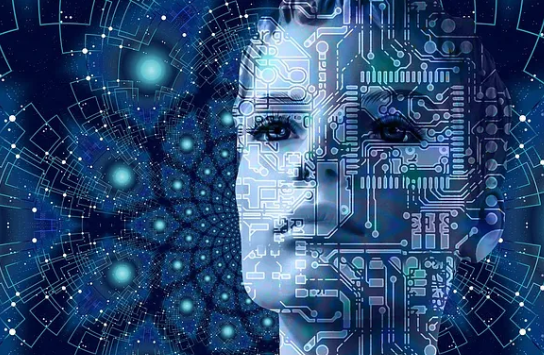How Does Negative Online Content Affect Your Mental Health? 5 Strategies for a Healthier Digital Diet.
In the digital age, we spend a significant portion of our lives online—scrolling through social media, reading news articles, or engaging with various forms of content. While the internet can be a powerful tool for connection, entertainment, and education, it also exposes us to a constant stream of information, some of which can have a profound impact on our mental health. The phrase “You are what you scroll” highlights the idea that the content we consume shapes how we think, feel, and behave.
The Psychology of Online Content
Humans are highly susceptible to the content they consume, both offline and online. Psychologists refer to this as the “cognitive-affective model,” which suggests that the information we engage with influences our emotions, thoughts, and behaviors. Social media platforms, in particular, amplify this by providing algorithms that tailor content to our preferences and engagement history, leading us to often encounter content that aligns with our existing views and interests.
While positive and inspiring content can provide mental uplift, negative online content—such as distressing news, toxic comments, or cyberbullying—can have detrimental effects on our emotional well-being. Here’s a breakdown of how negative online content can negatively impact your mental health:
1. Heightened Anxiety and Stress
The constant barrage of negative news—be it natural disasters, political unrest, or social injustices—can lead to what some psychologists call news fatigue. Consuming distressing content regularly can heighten feelings of anxiety, stress, and helplessness. A phenomenon called “doomscrolling” has become widespread, where individuals continuously scroll through negative news stories, unable to stop, even when it worsens their emotional state. This cycle can increase worry, make people feel powerless, and even exacerbate pre-existing anxiety disorders.
2. Depression and Feelings of Isolation
Social media is a double-edged sword when it comes to mental health. While it offers ways to stay connected with others, it can also foster comparisons and feelings of inadequacy. When scrolling through platforms like Instagram or Facebook, it’s easy to be bombarded with curated snapshots of other people’s seemingly perfect lives. This can lead to feelings of loneliness, self-doubt, and depression, especially if one begins to compare their own life negatively to others.
Additionally, the experience of online harassment or trolling can worsen depressive feelings. Cyberbullying, hateful comments, or toxic interactions with others online can create a hostile environment that may lead to emotional distress.
3. Decreased Self-Esteem and Body Image Issues
The online world is often filled with filtered images and unrealistic portrayals of beauty, success, and lifestyle. Social media influencers, celebrities, and even peers contribute to the promotion of unattainable ideals. Constant exposure to these ideals can cause individuals to feel dissatisfied with their own appearance, body, or achievements. For example, the pressure to conform to certain beauty standards promoted by online platforms can trigger negative body image issues, particularly among teens and young adults.
4. Desensitization and Emotional Numbness
Over time, the consistent exposure to traumatic or upsetting content can lead to emotional desensitization. People might begin to feel numb or detached from their emotions as a result of continuously consuming disturbing or violent media. This can make individuals less empathetic to real-world suffering, and in some cases, it can hinder their ability to process or cope with their own emotions.
5. Polarization and Divisiveness
Negative content online often exploits polarizing issues, triggering strong emotional reactions that drive people further apart. On platforms like Twitter or Facebook, heated debates on political, social, or cultural topics often escalate into aggressive interactions. This division can lead to feelings of anger, frustration, and even hopelessness, as online discourse can become toxic and unproductive. The constant exposure to divisive content can create an “us vs. them” mentality that strains relationships, both online and offline.
How to Break Free: 5 Strategies for a Healthier Digital Diet
It’s clear that consuming negative content can have a real impact on our mental health, but there are ways to protect yourself and maintain a healthier online experience.
Curate Your Content Thoughtfully
Take control of your digital experience by intentionally selecting the content you engage with. Follow accounts that promote positivity, education, and inspiration rather than those that feed negativity or hostility. Engaging with uplifting and enriching content can create a more balanced and healthy digital environment for your mental well-being.
Set Time Limits
Scrolling endlessly through social media can leave you feeling drained and anxious. Set boundaries on your screen time by using apps that track or limit your social media usage. Designate specific times throughout the day for checking your feeds, and stick to it. Reducing screen time can help you regain focus and mental clarity.
Take Breaks: Disconnect to Reconnect
One of the most powerful ways to protect your mental health is by taking regular breaks from the digital world. Engage in offline activities like reading a book, exercising, or spending time with friends and family. A digital detox can help you reset, recharge, and refocus on what truly matters, free from the constant distractions and negativity online.
Engage in Meaningful Interactions
Instead of passively scrolling, try engaging with positive and supportive communities online. Whether it’s joining a group focused on a hobby or participating in discussions about mental health, fostering positive online relationships can provide a sense of connection and support.
Practice Self-Care and Seek Support
If negative content is taking a significant toll on your mental health, it may be time to seek professional help. A therapist or counselor can provide tools and strategies for managing the emotional impact of online negativity. Self-care activities, such as journaling, meditation, or mindfulness, can also help buffer the stress caused by online content.
Conclusion :
In an age where online content shapes so much of our daily lives, it’s essential to be aware of the impact that negative content can have on our mental health. While it may be impossible to avoid all negativity, being mindful of how much and what type of content we engage with can significantly improve our emotional well-being. Remember: you are not just what you eat or drink—you are also what you scroll.
PREVIOUS ARTICLE :


